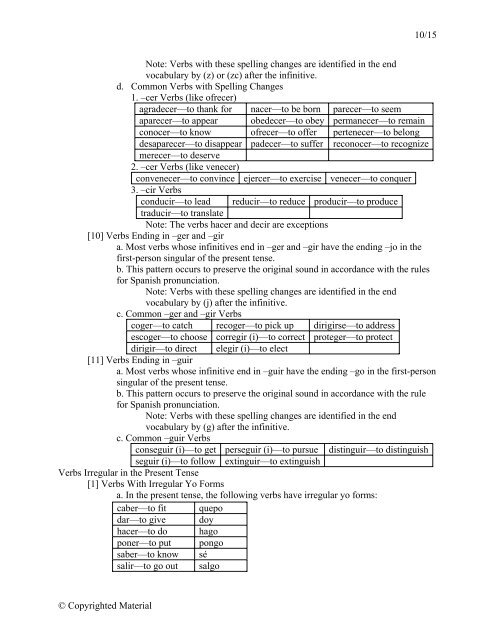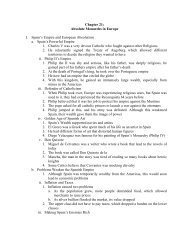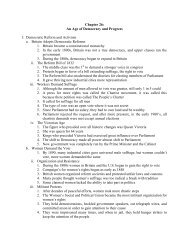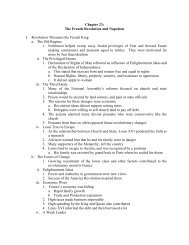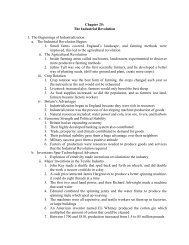1/15 © Copyrighted Material Spanish Final Study Sheet Ser vs. Estar ...
1/15 © Copyrighted Material Spanish Final Study Sheet Ser vs. Estar ...
1/15 © Copyrighted Material Spanish Final Study Sheet Ser vs. Estar ...
You also want an ePaper? Increase the reach of your titles
YUMPU automatically turns print PDFs into web optimized ePapers that Google loves.
10/<strong>15</strong><br />
Note: Verbs with these spelling changes are identified in the end<br />
vocabulary by (z) or (zc) after the infinitive.<br />
d. Common Verbs with Spelling Changes<br />
1. –cer Verbs (like ofrecer)<br />
agradecer—to thank for nacer—to be born parecer—to seem<br />
aparecer—to appear obedecer—to obey permanecer—to remain<br />
conocer—to know ofrecer—to offer pertenecer—to belong<br />
desaparecer—to disappear padecer—to suffer reconocer—to recognize<br />
merecer—to deserve<br />
2. –cer Verbs (like venecer)<br />
convenecer—to convince ejercer—to exercise venecer—to conquer<br />
3. –cir Verbs<br />
conducir—to lead reducir—to reduce producir—to produce<br />
traducir—to translate<br />
Note: The verbs hacer and decir are exceptions<br />
[10] Verbs Ending in –ger and –gir<br />
a. Most verbs whose infinitives end in –ger and –gir have the ending –jo in the<br />
first-person singular of the present tense.<br />
b. This pattern occurs to preserve the original sound in accordance with the rules<br />
for <strong>Spanish</strong> pronunciation.<br />
Note: Verbs with these spelling changes are identified in the end<br />
vocabulary by (j) after the infinitive.<br />
c. Common –ger and –gir Verbs<br />
coger—to catch recoger—to pick up dirigirse—to address<br />
escoger—to choose corregir (i)—to correct proteger—to protect<br />
dirigir—to direct elegir (i)—to elect<br />
[11] Verbs Ending in –guir<br />
a. Most verbs whose infinitive end in –guir have the ending –go in the first-person<br />
singular of the present tense.<br />
b. This pattern occurs to preserve the original sound in accordance with the rule<br />
for <strong>Spanish</strong> pronunciation.<br />
Note: Verbs with these spelling changes are identified in the end<br />
vocabulary by (g) after the infinitive.<br />
c. Common –guir Verbs<br />
conseguir (i)—to get perseguir (i)—to pursue distinguir—to distinguish<br />
seguir (i)—to follow extinguir—to extinguish<br />
Verbs Irregular in the Present Tense<br />
[1] Verbs With Irregular Yo Forms<br />
a. In the present tense, the following verbs have irregular yo forms:<br />
caber—to fit quepo<br />
dar—to give doy<br />
hacer—to do hago<br />
poner—to put pongo<br />
saber—to know sé<br />
salir—to go out salgo<br />
© <strong>Copyrighted</strong> <strong>Material</strong>


